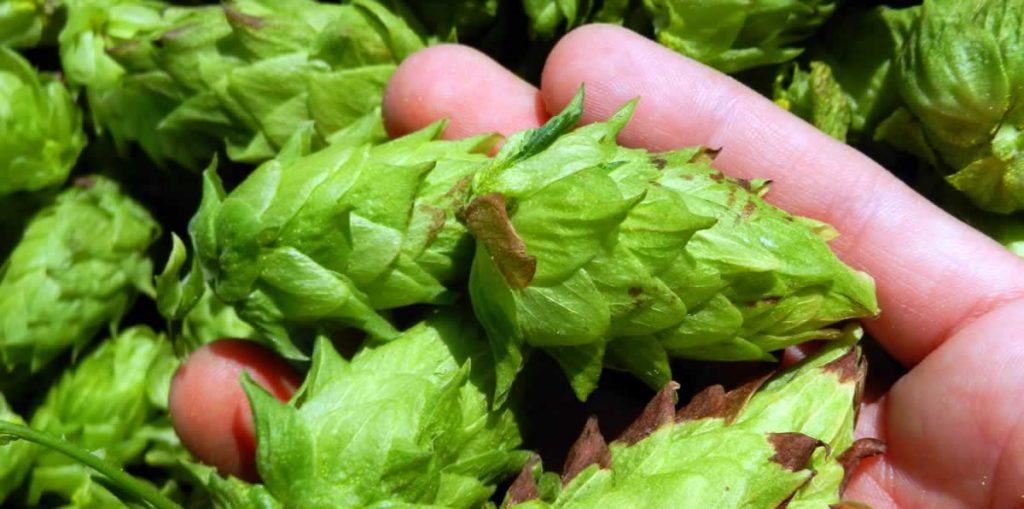By Clint Thompson
The potential of new high-yielding hops varieties has N.C. State Associate Professor and Extension specialist Jeanine Davis optimistic about the crop’s future in North Carolina.
“The growers are very excited because these yields are as high, and in some cases, higher than yields we’re often seeing in say Michigan and New York,” Davis said. “I think if we can make it economically feasible, we’ll have more growers get back into it.”
The varieties are still a couple of years away from commercial release, due to ongoing research. But Davis believes they should answer the low-quality volume question that delayed the crop’s expansion in its inception.

“Our yields were 20% to 25% of what they can get in the Pacific Northwest. We produce good quality hops. Our hops always brew good beer. They always test out well in the laboratories, but we just could not charge the kind of prices that we would need to do to keep it profitable. The yields just weren’t there,” Davis said. “We get quality. We get cones, we just don’t get enough of them.”
Hopes are commercially grown at higher latitudes, like Washington and Oregon. North Carolina is located on the latitude line where it is needed to produce high yields. Hops can be produced at lower latitudes, but they don’t get the same yield production. That may not be the case anymore.
N.C. State researchers believe they have developed varieties that will grow at any latitude. They hope to release those varieties following on-farm trials across the state.
“Growing hops is really expensive, getting into the industry. That’s what holds people back. If we can prove that we can get these yields with the history that we have in this state, I think people will be able to get the financing, get the loans to help them get established,” Davis said. “Most every craft brewery that we have talked to has been excited about it. But it’s the reality of what kind of volume they need. A lot of our beginning growers were like, I’m going to put in an acre or two of hops and I’m going to supply all of these breweries. It just doesn’t do that much. People didn’t understand how much it takes to produce what a brewery uses.
“I don’t think it’s going to be a giant industry, but I think it’s here to stay. I think as long as we have this big of a brewing industry, we’re always going to have some people growing hops for it.”









